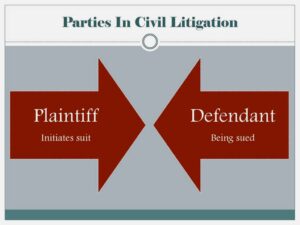
Some types of claims must be brought by petition- proving a will in solemn form and partition and sale are two examples.
Generally speaking if the petition was opposed it would be necessary to apply to court to convert the petition into an action, provide for examinations for discovery and set the matter for trial.
That general rule changed in 2022 by the Court of appeal as stated in Ross Estate (Re), 2023 BCSC 467 paragraphs 53 through to 56:
[53] Until the decision of the Court of Appeal in Cepuran v. Carlton, 2022 BCCA 76, a petition was required be converted into an action and sent to the trial list if there was a “bona fide triable issue” – that is, there were disputes of fact or law – unless the party requesting the trial was “bound to lose” … Put another way, before proceeding by petition, the judge hearing the matter had to be satisfied that there is “no dispute as to the facts or law which raises a reasonable doubt or which suggests that there is a defence that deserves to be tried” … The test is the same as the one that is applied on an application for summary judgment.
[54] That is still the definition of a triable issue, but in Cepuran a five-justice division of the Court reconsidered the requirement in Saputo that a petition has to go to the trial list whenever that definition is met. Instead, the Court concluded that:
158 It should be kept in mind that the starting point for those matters that are properly brought by way of petition is that the Rules contemplate that a summary procedure will be appropriate… This is different than the starting point for an action. There should be good reason for dispensing with a petition’s summary procedure in favour of an action. The mere fact that there is a triable issue is no longer a good reason.
The modern approach to civil procedure… is to allow parties and the trial courts to tailor the pre-trial and trial procedures to a given case, in the interests of proportionality and access to justice, while preserving the court’s ability to fairly determine a case on the merits. …R. 16-1(18) and R. 22-1(4) work to reflect this modern approach within a petition proceeding.
[A] judge hearing a petition proceeding that raises triable issues is not required to refer the matter to trial. The judge has discretion to do so or to use hybrid procedures within the petition proceeding itself to assist in determining the issues, pursuant to R. 16-1(18) and R. 22-1(4). For example, the judge may decide that some limited discovery of documents or cross-examination on affidavits will provide an opportunity to investigate or challenge the triable issue sufficiently to allow it to be fairly determined by the court within the petition proceeding, without the need to convert the proceeding to an action and refer it to trial.
At a minimum, when considering whether to order the use of hybrid procedures within the petition proceeding itself, or to refer the matter to trial, the court will need to be mindful of the object of the Rules set out in R. 1-3: to secure the just, speedy and inexpensive determination of every proceeding on its merits, and so far as can be achieved, in ways that are proportionate to the amount involved, the importance of the issues, and the complexity of the proceeding.
At para. 165 the Court “commended” a list of factors that may be relevant when deciding to convert a petition proceeding to an action [those being take from] Terasen Gas Inc. v. Surrey (City), 2009 BCSC 627, at para. 39. This list was in turn drawn from Haagsman v. British Columbia (Minister of Forest) … [and] Those factors are:
(a) the undesirability of multiple proceedings;
(b) the desirability of avoiding unnecessary costs and delay;
(c) whether the particular issues involved require an assessment of the credibility of witnesses; and
(d) the need for the Court to have a full grasp of all the evidence; and
(e) whether it is in the interests of justice that there be pleadings and discovery in the usual way to resolve the dispute.
The Court added at para. 166 that “[t]he factors that may be relevant will evolve with time and the circumstances of a particular case.”




